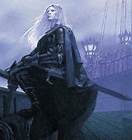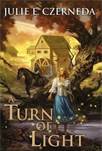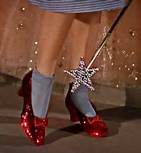Did I Do That? Or, We’ve Had the Sword, Where’s the Sorcery?
 A while ago, when I started writing these posts, I talked about how to put the sword in Sword and Sorcery, and while doing my latest posts on the Fantasy and SF hero, it struck me that, in a way, I was still really talking about the sword. Maybe it’s time to talk about the sorcery.
A while ago, when I started writing these posts, I talked about how to put the sword in Sword and Sorcery, and while doing my latest posts on the Fantasy and SF hero, it struck me that, in a way, I was still really talking about the sword. Maybe it’s time to talk about the sorcery.
This is not to say that our heroes can’t be wielding some kind of magic at the same time they’re wielding swords – but that’s not the way things started out. Most of the early heroes of the genre that we’re familiar with, Conan, for example, and yes, even Fafhrd and the Grey Mouser, weren’t magic users. In fact, many of these early heroes were fighting against those who were. Sorcerers were often seen as the enemy, or, at best, as very gingerly tolerated allies.
Along came some notable exceptions to this idea, particularly Michael Moorcock’s Elric of Melniboné, and, someone I mentioned last week, Roger Zelazny’s Dilvish the Damned. But these two, we might argue, are representatives of the “New Wave” in Fantasy, which in part introduced the concept of the more complex, multidimensional, anti-hero. They also fall into a special category of sorcerer, in that they’re at least partially magical beings, not humans. Which brings us to the first major subdivision of sorcery or magic that any writer in our genre has to consider: Is the magic internal, or external? Does it come from within, or without?
If internal feels right to you, if you decide that the magic’s in the mage, there are a couple of different paths for you to take. The first is to present magic as an innate ability in your characters, strengthened by use and practice. So what we’d have is a true magic user, someone who has a particular talent or knack, which, by study and discipline they learn to use, along with the instruments (wands, crystals, etc.) associated with it.
 There are metaphors that writers usually use to clarify the type of talent they’re talking about and make it more accessible to non-magic-user types. To that end, we’ll often see the ability to use magic compared to the ability to play the piano, to dance, sing, paint, and so on. Things we think of in the real world as “talents.” The idea being that while everyone can make the piano produce noise, not everyone can make it produce music. We’ve got people who can plunk out a simple tune, and we’ve got concert-level artists. So, too, we can have a variation in the level of magical abilities.
There are metaphors that writers usually use to clarify the type of talent they’re talking about and make it more accessible to non-magic-user types. To that end, we’ll often see the ability to use magic compared to the ability to play the piano, to dance, sing, paint, and so on. Things we think of in the real world as “talents.” The idea being that while everyone can make the piano produce noise, not everyone can make it produce music. We’ve got people who can plunk out a simple tune, and we’ve got concert-level artists. So, too, we can have a variation in the level of magical abilities.
As I said, most of the people who use magic in this way are humans, or the human-equivalent in their particular universe. And this, I think – the learning and casting of spells, with or without the use of magical tools – is what we usually mean when we say “sorcery”, and we call these characters “sorcerers” or “wizards” or some other synonym of that word.
We all know and love examples of this type of character. Merlin and Gandalf come to mind immediately, as do the characters of many of Barbara Hambly’s novels, Antryg Windrose, Rudy Solis or Sun Wolf, for example. Or, one of my personal favourites, Tanya Huff’s Magdelene, the most powerful wizard in the world.
When I mentioned Elric and Dilvish earlier, I was talking about the second classification of characters with internal magic, those for whom it’s a natural condition of being, almost, if you will, a genetic or evolutionary trait. These characters don’t have to study, or follow a discipline – at least no more than a human child needs to do in order to grow up human. So, they might have some things to learn, as human children learn to walk and speak, but other than that, the sorcery comes naturally to them. That’s what distinguishes these characters from sorcerers and wizards: they’re not human.
 My version of the Fae in my Mirrorlands books, for example, have been known to say, “We don’t do magic, we are magic.” The very same observation is made of Jenn Nalynn, the main character of Julie Czerneda’s excellent A Turn of Light. These are the kind of beings that Tolkien has in his elves, and to some extent his dwarves: the kind he talked about in his essay “On Fairy Stories.”
My version of the Fae in my Mirrorlands books, for example, have been known to say, “We don’t do magic, we are magic.” The very same observation is made of Jenn Nalynn, the main character of Julie Czerneda’s excellent A Turn of Light. These are the kind of beings that Tolkien has in his elves, and to some extent his dwarves: the kind he talked about in his essay “On Fairy Stories.”
Sure, they might perform the odd spell or use the occasional magical artefact, but their magic primarily takes the form of attributes particular to their race, physical enhancements such as great speed, strength, or long life, as well as the ability to influence or commune with natural phenomena such as the weather, water, trees, animals and so forth.
A variant on this approach is the human with innate magical abilities. One of the common ways to use this type of character is to give them a specific ability, such as telepathy or teleportation. Sometimes we’ll give our characters a less specific but perhaps more useful ability, such as “healing”.
 But what, I hear you asking, about that second path? What about external magic? I think we’re all familiar with the concept of the magical artefact. Probably the two best known are the ruby slippers, and the One Ring. With artefacts the power, the magic, the sorcery, is inherent in the object itself, and anyone – a farm girl from Kansas, a Hobbit from the Shire – can work the object.
But what, I hear you asking, about that second path? What about external magic? I think we’re all familiar with the concept of the magical artefact. Probably the two best known are the ruby slippers, and the One Ring. With artefacts the power, the magic, the sorcery, is inherent in the object itself, and anyone – a farm girl from Kansas, a Hobbit from the Shire – can work the object.
Occasionally it takes a particular person, or type of person, to use the object well, as with Arthur and Excalibur. Sometimes such people, like those with natural magical abilities, are seen as blessed, and revered. Sometimes they’re seen as cursed, and shunned – or worse. That’s when the sorcery stops being just an interesting concept, and starts being an element of plot.
Which leads us to next week’s topic: once you’ve decided what kind of magic you’re going to use, how do you actually use it?
Violette Malan is the author of the Dhulyn and Parno series of sword and sorcery adventures, as well as the Mirror Lands series of primary world fantasies. As VM Escalada, she writes the soon-to-be released Halls of Law series. Visit her website www.violettemalan.com.
I’ve been following these posts for a few weeks now and they’ve all been very interesting.
But, to be honest, I think the later half of this post is rushed. Perhaps the subject of sorcery needs a more in depth post?
Just nitpicking, but the Gray Mouser was a magic user. He in fact started as a magician apprentice, as can be seen in “The Unholy Grail”.
SFTHEORY1: that’s why there’s going to be at least one more post on the subject, and possibly two. It’s not something that can be covered in length here.
GABRIEL: you’re absolutely right, thanks for the reminder. I think what I had in mind was that magic wasn’t what he was known for. We also can’t overlook that “The Unholy Grail” is essentially a prequel, and that many of the other stories were written first, with perhaps a different emphasis.
Eh, I hate the “you have to be specially talented to do magic” trope with a consuming passion. It works if it’s a knack, not something you study, or if it’s a difference beyond talent — Gandalf isn’t human, and Merlin is only half so — but for some humans to have it and others not — that I hate.
Violette: Yay! I always love posts and articles exploring the sorcery aspect of fantasy.
Mary: I’m not certain I understand what you mean. Are you not fond of the mutant variety of sorcery (like Harry Potter and Fairy Tail) or the talent/ interest type?
MARY: I’m intrigued by your comment. What is it about the trope that annoys you so much? Of course you realize I’m not saying you have to do it that way, just that it’s one of the major tropes. As to WHY it is, that gives me an idea for next week, thanks.
I can relate to may’s hate of the “you have to be specially talented to do magic”. It annoys me because
a) it implies that the one that can are somehow chosen without having any influence over it,possibly implying a higher guiding force or a destiny set in stone
b) it takes away the hope of normal humans to become a magic user with sufficient training.
That discussion also comes up when discussing Star Wars old trilogy (become a Jedi by training) versus Star Wars new trilogy (either you got those thingies in your blood and can be a Jedi or you’ve lucked out)
The way it makes the wizards such special little snowflakes without effort on their part.
It doesn’t necessarily ruin a work it’s in — fortunately, since you can’t escape it in modern fantasy — but having a work endorse the special-little-snowfalke philosophy is a mark against it.
MARY, let me see if I understand. You don’t object to the trope that only non-humans have magic (elves, Fae, etc.), nor to the trope that all humans (or the human equivalent)have some degree of magic, but that they have to study and work hard to develop it — and that therefore some have it to a greater degree than others.
What you’re objecting to is the some-have-the-gift-and-some-don’t trope. Is that it? You prefer works that don’t have characters that are set apart in this way?
How do you feel about Harry Potter? I think Rowling confuses the issues even further for us, with the division into Wizards and Muggles. On the one hand, Muggles (ordinary humans) don’t have magical abilities, and no amount of study will give it to them, which seems to fit with the only-non-humans trope — except that Muggles and Wizards can interbreed (ie. same species) and occasionally a Muggle child has magic and gets their letter from Hogwarts, so it looks like it’s the special-people-only trope. Of course, within the wizarding community itself, it’s the everyone-talented-but-some-more-than-others trope. I confess that here, I don’t know which side of the argument I’m on.
I know I’ve used both the certain-people-only trope and the everyone-to-some-degree trope — and, come to think of it, the non-human one as well. So clearly I don’t have a philosophical objection to any of them. I, ahem, won’t tell you which books use which one, just, you know, in case.
OLIVER: I’m not a fan of the new trilogy, so I wasn’t actually aware of this change. I do have a philosophical objection to going back and changing/re-writing a previous work because you need it to be different now. So I think you can see which side of that argument I’d be on.
My thanks to you both.
Violette, another interesting article, but one that only scratches the surface as sftheory1 says, so I do look forward to your further explorations.
I will share that I have a world wherein magic is in everything/one, quite physically. I’ve combined quite a bit from my various reading/gaming exposures, but essentially my world has a number of colors of magic, each powering certain types of magical powers/abilities. The world itself is sentient, a global magical entity that created its own life and imbued its magical self into everything. Thus, my people actually have magical organs that are the root of their powers, which are as wide-ranging in quantity, mix, strength, etc., as any other organ/tissue/muscle in us. These organs are like coin changers, with fleshy tubes of colored power that can be filled/depleted, atrophy, burst, and even be harvested — legally and illegally.
So while everyone in my world is magical each is magical to varying degrees, from negligible (even none dependent upon circumstances) to wildly powerful.
I enjoy sorcerous tales with vile foes who sell their souls (and those of everyone around them) for powers and with magic-wielders both bad and good who require all sorts of combinations of paraphernalia to cast their spells. To read that is. Just not so much to write. Though I never did cotton to those tales wherein magic users cannot bear the touch of iron/steel, practically prohibiting warrior-mages. I like my protagonists and their foes to be artists of both blade and spell. 🙂
Rowling and writers who don’t want to do an alternate history have to find some way to hide the magic from us.
Still, it’s not a virtue, even in her work. I prefer the works without it.
MARY: “Not a virtue” pretty much sums it up, I think.
JASON: Very intriguing idea. Often the whole magic-user thing is handled with more depth in gaming-oriented work. I’d like to see your stuff when it’s finished.
[…] Last week I started talking about how we put the sorcery into sword and sorcery novels. People who don’t read fantasy are often mistaken about how its supernatural tropes actually work. In part, they feel that you can’t have any real tension or conflict because there’s magic, and magic solves everything. You know, you just wave the magic wand and the problem goes away.* To which I say, “Tell that to the wicked Witch of the West.” Or Harry Potter. Or Gandalf. […]
[…] mentioned in my first post on this subject that most magic users aren’t also sword users – many are simply never […]